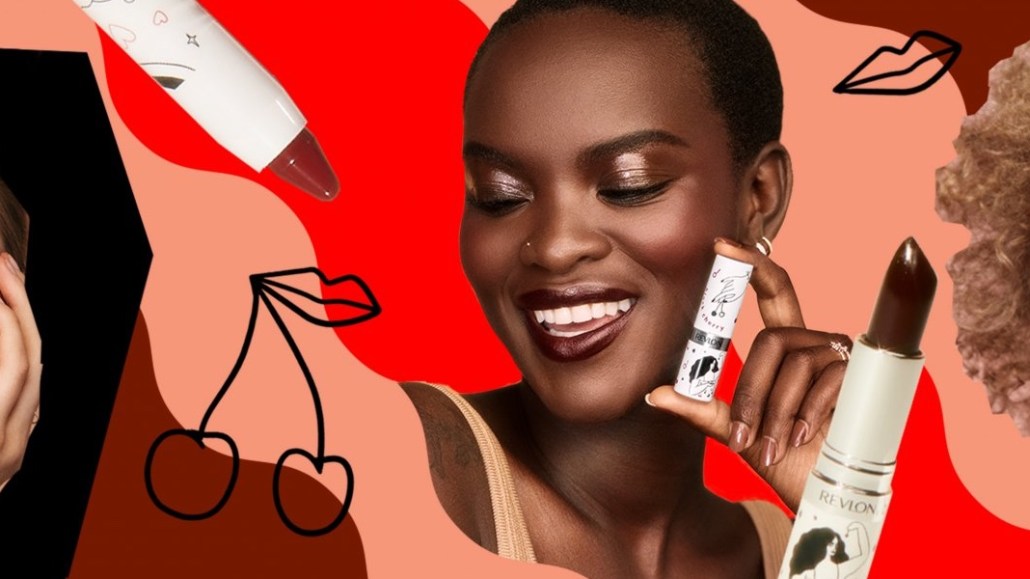Secure your place at the Digiday Media Buying Summit in Nashville, March 2-4

To broaden its revenue streams, Refinery29 is ramping up its brand licensing.
This month, the women’s publisher released a line of greeting cards it produced with card company Papyrus and a line of lipsticks it produced with Revlon on Sept. 7. Refinery29 also signed a brand licensing partnership with IMG.
The publisher sees these deals as a way to do more elaborate, expensive programs with advertisers. It’s also the latest step in Refinery29’s return to its commerce roots. Refinery29 wouldn’t say how much revenue it was earning from these deals or how big a piece of revenue it expects brand licensing to become.
Like other venture-backed publishers including BuzzFeed and Vice Media, Refinery29 is under pressure to diversify its revenue streams to justify its valuation. In addition to its brand licensing and commerce pushes, it is also exploring film distribution with distributor Neon. At the end of last year, it laid off 34 staffers, about 7 percent of its workforce.
“We’ve kind of pushed ourselves to go more from URL to IRL,” said Piera Gelardi, Refinery29’s executive creative director.
Refinery29 said it sees an opportunity in brand licensing because its audience trusts the publisher as a source of product recommendations. Sarah Personette, the publisher’s former chief operating officer, told the Drum this summer that half of its audience has bought at least one product it’s seen featured on Refinery29.
Gelardi and the creative team works with Refinery’s sales and business development to figure out how much media they will put toward supporting or promoting the product. Typically, a licensee partner will contribute advertising and marketing funds equivalent to 1 to 2 percent of the expected retail sales, according to data provided by the Licensing Letter.
Chris Sumner, the publisher’s svp of business development and strategy, said Refinery markets the products on its own site and on distributed platforms (the company wouldn’t give a dollar figure). Refinery negotiates how many times the products are mentioned on platforms like Instagram, how often the products are featured in call to action widgets on Refinery’s homepage, or featured in promotional newsletters. While it has offered advertisers access to its editorial staff in the past, all of the content and assets promoting these products is generated by Refinery’s creative services team.
For publishers that look to brand licensing, the new revenue comes with risk to advertising.
“The big risk with publishers licensing their brand used to be that they were worried that they may offend a current advertiser and cause the advertiser to decrease their spend,” said Stu Seltzer, founder of the Seltzer Licensing Group, which works with brands including CBS and Mastercard. “However today, most advertisers are decreasing their spend already, so publishers have decided to explore these royalty revenue deals.”
To mitigate that risk, Gelardi said Refinery is looking to do deals with longstanding advertisers. Revlon, for example, has been a client for over five years, Papyrus, two. Papyrus and Revlon also have sponsored 29Rooms.
A brand-conscious publisher like Refinery29 also has to be selective about who it works with.
“The most fundamental question that either brand or either side of the relationship needs to ask is: ‘What does this say about us?’” said Ken Pasternak, managing director of brand consultancy Marshall Strategy, who’s worked on projects for clients including Yahoo, MTV and Time Warner. “The true test of brand loyalty is whether someone actually wants to wear you on their body.”
More in Media

From feeds to streets: How mega influencer Haley Baylee is diversifying beyond platform algorithms
Kalil is partnering with LinkNYC to take her social media content into the real world and the streets of NYC.

‘A brand trip’: How the creator economy showed up at this year’s Super Bowl
Super Bowl 2026 had more on-the-ground brand activations and creator participation than ever, showcasing how it’s become a massive IRL moment for the creator economy.

Media Briefing: Turning scraped content into paid assets — Amazon and Microsoft build AI marketplaces
Amazon plans an AI content marketplace to join Microsoft’s efforts and pay publishers — but it relies on AI com stop scraping for free.








